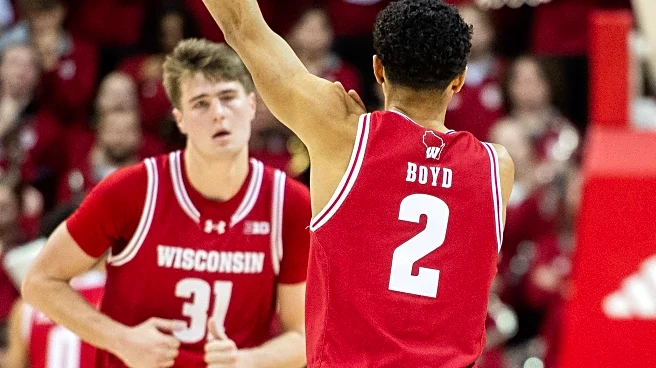What's Happening?
Bill Belichick, renowned for his success in the NFL, has transitioned to college football as the head coach of North Carolina. This move was anticipated to elevate the Tar Heels to a level comparable to an NFL team. However, the team has struggled significantly, particularly highlighted by a recent loss to Clemson. The situation has sparked discussions about Belichick's capabilities post-Tom Brady, with some NFL executives expressing skepticism about his effectiveness without the star quarterback. The challenges Belichick faces include adapting to the college environment, dealing with younger players, and navigating the complexities of modern college football, such as NIL deals and parental involvement.
Why It's Important?
Belichick's difficulties in college football underscore the challenges of transitioning from professional to collegiate coaching, especially for seasoned coaches accustomed to the NFL's dynamics. This situation could impact Belichick's legacy, as it raises questions about his adaptability and effectiveness outside the NFL. The broader implications for college football include the potential reevaluation of hiring strategies for college teams, considering the unique demands of coaching at this level. Additionally, it highlights the evolving landscape of college sports, where traditional coaching methods may need to adapt to new realities.
What's Next?
Belichick's future at North Carolina will likely depend on his ability to adjust his coaching style to better fit the college environment. This may involve embracing new strategies to connect with younger players and manage the complexities of college sports, such as NIL agreements. The team's performance in upcoming games will be crucial in determining whether Belichick can overcome these challenges. Stakeholders, including university officials and fans, will be closely monitoring the situation, potentially influencing decisions about his tenure and the team's direction.
Beyond the Headlines
The situation with Belichick at North Carolina highlights broader themes of aging and career transitions, particularly in high-pressure fields like sports coaching. It serves as a reminder of the importance of recognizing personal limitations and adapting roles to suit one's strengths. This narrative could resonate with professionals in various industries facing similar transitions, emphasizing the need for strategic career planning and adaptation.










